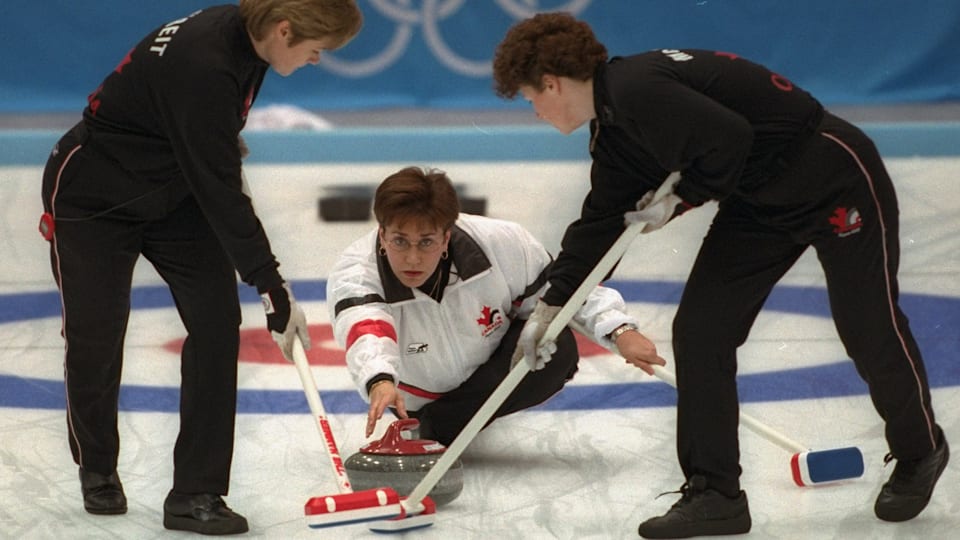
Even before the curling competition in Nagano started, a bit of history had been made. Not only was this the first full Olympic curling competition since 1924, it was taking place in Karuizawa, which had also been a host venue at the 1964 Summer Games, meaning that it became the first place in history to stage events at both a Summer and Winter Olympics.
Canada were the overwhelming favourites to win both the men’s and women’s competitions. In the first ever women's tournament, that's exactly what happened. In the final, new mother Sandra Schmirler captained her rink to gold with victory over Denmark.
However, the men's competition proved to be a rather more unpredictable affair, much to the surprise of the favourites themselves, who had earlier suggested that a decent Canadian club side could beat any team from Europe. It was certainly true that Canada accounted for the vast majority of the world's curling players but, as so often happens, they were to rue their over-confidence.
In truth, it was never going to be plain sailing for the Canadians. Sweden had won the world championship title the previous year and were expected to lead the European challenge. However, the Swedes failed to make the semi-finals, while the Canadians looked very comfortable in their group games.
Joining them in the last four were the USA, who just scraped into the medal round, Norway and Switzerland.
Canada faced their North American neighbours in the semi-finals, easily, sweeping to an easy 7-1 victory, while the Swiss edged past Norway by a single point in the other match.
The final now looked to be a shoo-in for the favourites. But they were in for a major shock. Just about everything went the way of the Swiss. After six ends, they led by the barely believable margin of 9-1, as the Canadian skip Mike Harris endured a torrid time. The Canadians did manage to reduce the deficit to 9-3 by the end, but there was no way back. The Swiss were crowned champions in one of the biggest shocks of the 1998 Winter Games.
